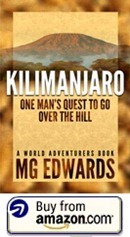I have a collection of Bibles in different languages. It’s an odd collection, I know, but there are two logical reasons for this collection. The first is that it is a collection of the most widely published and translated work in the world. No other literary work is available in so many languages. I am a foreign language buff, so the Bible is a logical book to choose when collecting works in other languages.
The second purpose is that a Bible collection is a “living collection”; that is, I collect Bible translations when I find them and give a localized Bible to someone who can read it in that language and needs a copy. Last year a Paraguayan friend saw that I had a copy of the Bible in Guarani and marveled that I had one because they weren’t readily available in Asuncion. So I gave it to him and bought another one. Whenever these books serve a greater purpose than collecting dust on a shelf, I am happy to give them away. So far I’ve collected over 50 Bibles in different languages from around the world. Yesterday I found four more in a Lusaka bookstore translated into different African languages, including Bemba, an indigenous language widely spoken in Zambia. If I come across someone who needs one of them, it’s theirs to keep. I’ll get another.
I also enjoy the challenge of finding Bibles in local languages wherever I travel. I’ve been able to collect indigenous Bibles in virtually every country I’ve visited. When I can’t find it locally, I buy one online. The only Bible I haven’t found to date is an Egyptian Coptic Bible. I didn’t have any luck finding one when I visited Egypt in 2001-02, and I couldn’t find it for purchase online. Here in Zambia, the challenge will be to find the Bible translated into the countries’ seven major indigenous languages. Yesterday I found Bibles in Bemba and Kaounde. Two down, five to go.
World Adventurers Magazine
 |  |  |
|
 |  |  |  |
 |  |  |  |




